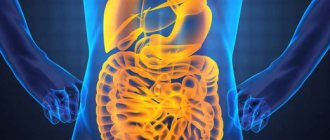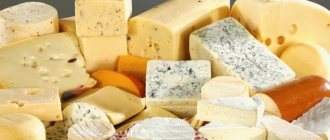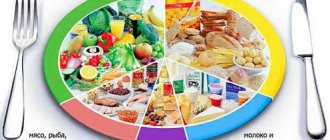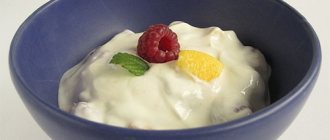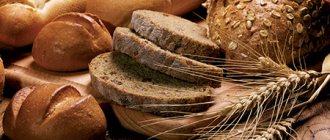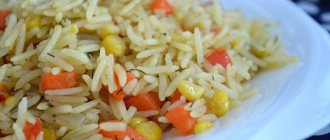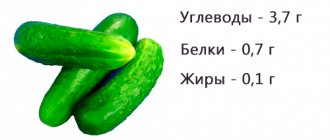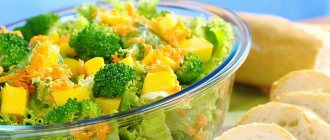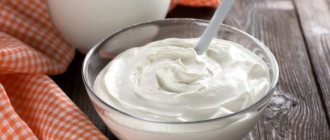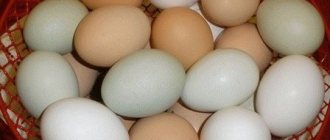Pancreatitis is a disease that should never be ignored. Treatment of pathology must be systematic and correct. It can only be recommended by a medical specialist. So, medications for this disease, oddly enough, are of secondary importance.
A specialized diet comes first, the goal of which is to restore the proper functioning of the pancreas. Also, in certain cases, doctors recommend therapeutic fasting for pancreatitis. How effective is it and how to properly introduce it into your life? Let's try to figure it out and answer these and other questions.
About pancreatitis
Pancreatitis is a type of pancreatic disease that is associated with the development of inflammatory processes in the tissues of the gland due to the release of too many digestive enzymes. The pancreas is a very important organ that provides the supply of active substances to the intestines - enzymes responsible for ensuring that proteins, fats and carbohydrates entering the human body with any food can be broken down and then absorbed into the intestines and used by the body for its own needs. .
If the gland does not function properly, there is a disruption in the functioning of the digestive system as a whole. For example, if there are problems associated with tissue inflammation, the gland begins to actively produce digestive enzymes, which are not used for their intended purpose due to their excess. Thus, they are activated immediately inside the organ and begin to digest it. There may also be problems with the patency of the duct for enzymes, which means that the latter cannot enter the intestines normally and again have a negative effect on the walls of the organ itself.
On a note! The pancreas has another function - the production of hormones (for example, insulin) that control a number of processes in the body. If you have problems with the functioning of the organ, you can develop diabetes mellitus if you do not treat the diseases.
The reasons for the development of pancreatitis are, first of all, poor nutrition, that is, eating large amounts of fatty and carbohydrate-containing foods, as well as overeating. Consuming large amounts of alcohol, as well as drinking it regularly, also negatively affects the condition of the pancreas. Doctors even identify a separate form of pancreatitis - alcoholic. The onset of the disease can also be triggered by surgery, taking a number of medications, obesity, etc.
Feeling hungry after eating
Feeling hungry after eating: how to cope yourself
It is not uncommon to feel hungry immediately after eating, even though you have eaten enough food. There are many reasons for this phenomenon, but you can easily deal with them yourself.
The feeling of hunger is a kind of signal from the body that it needs energy. This phenomenon is considered absolutely normal if eating food does not lead to excess weight gain and the appearance of diseases that occur due to obesity.
Feeling hungry immediately after eating: reasons
Why doesn't the feeling of hunger go away after eating? This could be for several reasons:
- Stress: in this state, the body accumulates energy, trying to make “reserves”. A person has a desire to eat something, and, as a rule, these are sweets containing fast carbohydrates, which cause weight gain;
- Mental stress: with high mental activity, the body actively consumes glucose, which is why there is a desire to replenish it by eating food. The idea that only athletes need energy is a common one, but it is wrong: people who work as engineers or in other industries that require enormous mental concentration burn just as many calories as those who work out in the gym. It is precisely because of the impossibility of following a diet that they have to snack on, at best, nuts or dried fruits;
- False hunger. It can occur on a psychological level, or when the body experiences a lack of substances: calcium, magnesium, sulfur, chromium, phosphorus, etc.
Also, a constant feeling of hunger even after eating may appear while following a diet, in which case it is necessary to either increase the amount of water consumed or choose a different weight loss method.
A feeling of hunger in the stomach after eating often occurs due to diseases:
- Pathologies of the nervous system;
- Hormonal imbalance;
- Diseases of the gastrointestinal tract or endocrine system.
If after eating a feeling of hunger quickly sets in, a person does not experience stress and does not engage in mental activity, but constantly wants to eat some fatty dish, this indicates a lack of calcium: it is present in fermented milk products, almonds, hazelnuts, pistachios, oatmeal, peas and barley groats.
If you have a craving for salty foods, there may be a lack of sodium or chlorine. Such elements can be obtained from seaweed, mussels, anchovies, shrimp, squid, sturgeon, crayfish and crabs.
https://youtu.be/JHV57CWFr34
Main signs and types of disease
The main signs of pancreatitis include:
- burning and severe pain in the hypochondrium on the left side (the pain is paroxysmal and may have a girdling nature; it occurs suddenly, but usually after eating for 20-30 minutes or after alcoholic libations);
- nausea, and then vomiting, which does not give a person relief and does not improve his condition;
- flatulence and bloating;
- loss or deterioration of appetite in general;
- diarrhea, and in some cases constipation;
- with severe inflammation, the temperature may rise.
On a note! Let us note that all these signs are fully manifested only during exacerbation of pancreatitis, that is, in its acute form (the so-called attack of pancreatitis). In the chronic course of the pathology, the signs are not obvious and subtle. A person generally feels slight discomfort, sometimes encounters diarrhea, a general deterioration in condition, etc.
Doctors conditionally divide people suffering from acute pancreatitis into 4 categories. You can see them in the table:
It is not easy to make an accurate diagnosis in the presence of pancreatitis, since the symptoms of the disease are very similar to the symptoms observed in other gastrointestinal diseases. That is why it is important not to self-medicate, but to go to a clinic. After an initial examination of the patient and collection of anamnesis, the doctor will prescribe a series of examinations and tests, after which he will be able to confirm the diagnosis and prescribe appropriate treatment. Moreover, therapy may differ depending on the general condition of the person, individual characteristics, etc.
Reasons for feeling hungry even immediately after eating
A few minutes after finishing a satisfying lunch, are you again trying to find something tasty in the refrigerator? Does the feeling of hunger haunt you constantly, giving you no peace? The reason for this phenomenon may be a banal violation of the normal diet, due to which the stomach may require additional food immediately after eating, or serious illness.
This can only be clarified with the help of a gastroenterologist, who will conduct all the necessary studies and prescribe treatment appropriate to the characteristics of the body. Here we will simply give the reasons why there is a constant feeling of crazy hunger and describe some simple ways to combat it.
Do you have a good breakfast?
The first reason why you want to repeat the meal immediately after a hearty meal is that you are ignoring the need for a hearty breakfast. The morning meal sets the tone for the whole day and allows you to create a certain supply of energy at least until lunch. That is why it should include eggs and nutritious dairy products, cereals and citrus fruits that provide vitamins and energy substances, and whole grain bread.
A great option for a nutritious breakfast that will save you from the desire to have another snack after eating is a smoothie. A milkshake with vegetables, berries or fruits will help keep your gastrointestinal tract in check and eliminate discomfort.
Once again about the dangers of overeating and the benefits of water
Another reason why you are tormented by the constant feeling that you are hungry is the wrong approach to nutrition. If you sit on fast food all day, it’s kind of stupid to be surprised that after eating you head back to the refrigerator. The body requires the vitamins, microelements, fats and proteins it lacks, and solid carbohydrates simply cannot please its sensual nature.
In addition, let us repeat for the millionth time a banal but very effective recommendation - drink a lot of water. Firstly, it dilutes food in the stomach and quickly removes toxins from the body, and secondly, it dulls the feeling of hunger. However, we can talk endlessly about the benefits of drinking water.
Mistakes with choosing a diet
Do you explain your constant feeling of hunger by the fact that you recently went on a diet that should save you from extra pounds? In this case, you can stop starving yourself, since the chosen diet is a priori incorrect. Yes, the diet is guaranteed to provide serious stress to the body, but still, after eating, even the most meager, you should not want to snack again. Therefore, consult a gastroenterologist - he will take into account the characteristics of your body and offer a more effective and reasonable nutrition plan.
If the diet is aimed at healing any disease, and there is no way to quit it, add whole grains and vegetables and fruits to the diet - they are very rarely harmful, and even then to a minimum, but they can easily eliminate the feeling of hunger.
Having health problems
Sometimes a crazy feeling of hunger that appears after a hearty meal is a consequence of the following diseases and problems:
- serious genetic disorders, which can not be too correctly compared to the failure of the control module of some electronic device. You are completely sure that you are full, but if this very module does not receive information about this due to a program failure, then the body will continue to feel hungry;
- problems with hormone production, endocrine disorders;
- depression or stress. When we are nervous, we automatically feel the feeling that we are hungry, and this is also associated with hormonal subtleties. But the desire to have a snack immediately after eating is a clear sign of serious disorders that need to be treated.
Problems with physical activity and intense mental activity
The feeling of hunger, which haunts even immediately after a hearty meal, often appears in people who move little, work in an office, and do not exercise. In the process of digesting a huge amount of food that has fallen on it, the stomach gradually stretches and increases, so the volume of what is eaten for complete saturation, albeit slowly, increases. Sports exercises and cardio training exclude this development of events, since calories are burned much faster.
Treatment of the disease
There are not so many tactics for treating pancreatitis. But therapy usually begins with taking certain medications prescribed by a doctor, as well as diet. In any case, doctors do not immediately send anyone for surgery, except in special cases. Surgical intervention is used extremely rarely.
On a note! On the first day of treatment, doctors cannot always immediately determine the stage of the disease. But, nevertheless, treatment begins immediately. And the chances are high that it will be effective.
The task of doctors is to eliminate the pain syndrome and start the proper functioning of the gland. Therapeutic fasting, a special diet, detoxification therapy, and taking special medications help them with this.
Constant feeling of hunger and stomach pain
- What are the characteristic symptoms
- Causes of hunger pain
- Additional points
A constant feeling of hunger and pain in the stomach can signal disturbances in the gastrointestinal tract and digestive processes. As a rule, a person begins to feel discomfort and unpleasant, sharp pain in the left hypochondrium, which disappears after the next meal. Regardless of the reasons that contributed to the onset of pain and discomfort, they are all united by the common name #8212; gastralgia.
In addition, hunger pain can be one of the main clinical symptoms of ulcerative lesions of the gastric mucosa, duodenum, or characterize a pre-ulcerative condition (gastritis). As a rule, the feeling of hunger occurs several hours (3-6 hours) after eating and is accompanied by pain. With more serious disorders and pathologies, throughout the day a person feels that he is constantly hungry, while the period between the onset of clinical symptoms is significantly reduced and their intensity increases.
Hunger pains differ according to the following criteria:
- character;
- degree of expression;
- intensity and duration.
The feeling of hunger is one of the necessary physiological manifestations and is controlled by the nutrition center located in the cerebral cortex. The center is connected to the organs of the digestive system by nerve endings that transmit the necessary impulses, and consists of two sectors: the “saturation area,” which is localized in the ventromedial section of the hypothalamus, and the “hunger area,” located in the lateral sector. Due to the impact on these points, the brain receives a signal about saturation or, conversely, about the need for nutrients.
What are the characteristic symptoms
Unfortunately, many do not pay due attention and, feeling another attack of hunger, simply “eat up” it with a snack, thereby further aggravating their situation.
Hunger pain in a pre-ulcerative state indicates the onset of the development of inflammatory processes in the gastric mucosa, with gastritis or focal lesions of the stomach. In addition to the constant feeling of hunger, discomfort and pain symptoms, there is pain in the stomach, especially when pressing with your fingers in the stomach area.
Hunger pain with an intestinal ulcer, as a rule, appears 3-4 hours after any meal; with more severe lesions, acute pain and hunger appear earlier. With a gastric ulcer, painful sensations appear 1-1.5 after eating. In addition, pain is accompanied by heartburn, belching, and frequent attacks of nausea. If severe pain occurs in the morning, this condition indicates the presence of erosive and ulcerative lesions of the digestive system. A decrease in pain symptoms and normalization of the condition is noted after eating or after vomiting and this is associated with the normalization of the level of acidity in the stomach.
Hunger pain can occur both during the day and at night, causing terrible discomfort. The nature of pain can manifest itself in different ways. So, the pain can be throbbing, sharp, aching, burning, shooting. At the same time, even despite severe pain and hunger, a person can hardly force himself to eat anything. This is explained by the fact that in this way a protective reaction is triggered in the body, as a result of the refusal of the digestive system to digest heavy food.
Return to contents
Causes of hunger pain
- Violation of the motor and secretory functions of the gastrointestinal tract.
- Constant irritation of receptors in the area of ulcerative lesions.
- Increased production of hydrochloric acid, resulting in increased acidity in the stomach.
- Ingestion of toxic substances or exposure to active components of medications.
- Unbalanced, irregular diet, bad habits (excessive drinking, smoking).
- Psycho-emotional factors, frequent stress, disturbances in the functioning of the central nervous system.
- Hormonal imbalance, metabolic disorder.
- The appearance of pathological neoplasms in the gastrointestinal tract.
In addition to the reasons listed above, quite often many women during pregnancy experience a constant feeling of hunger. This condition is directly related to intensive restructuring of the entire body and changes in hormonal levels, since all functions are aimed at creating optimal conditions for the intrauterine development of the fetus.
Quite often in medical practice we are faced with situations where a feeling of hunger occurs immediately after eating.
If no pathological processes or concomitant diseases are detected, this condition is caused by psychological or physiological factors. For example, in case of disturbances in insulin metabolism, in which the concentration of glucose in the blood sharply decreases, a sharp change in the usual diet or diet, or a significant limitation in the amount of food consumed.
In the event of a sudden change in diet, the body experiences severe stress, as a result of which metabolic processes slow down and a restructuring of the body occurs, which begins to put aside nutritional components of food “in reserve.”
Return to contents
Additional points
Attacks of severe hunger can also be caused by prolonged mental or intense physical activity. In addition, constant snacking not only leads to disruption of the usual diet, but also forces the body to work more intensively. To avoid such unpleasant phenomena, you need to balance your diet and adhere to the established diet.
The appearance of an acute feeling of hunger is also often noted in the premenstrual period, a few days before or immediately after it due to a decrease in the hormone estrogen in the blood. Women feel the need for constant snacks. When the first symptoms appear, you should not delay a visit to a gastroenterologist or endocrinologist, much less self-medicate. Treatment should only take place under the strict medical supervision of a medical specialist and only after a comprehensive diagnosis. The choice of treatment method depends on the degree of manifestation, form and intensity of clinical symptoms. In addition, it is very important to establish the root cause that led to the appearance of painful sensations.
© Copyright –, ozheludke.ru Copying of site materials is possible without prior approval if an active indexed link to our site is installed.
Attention! The information published on the site is for informational purposes only and does not constitute a recommendation for use. Be sure to consult with your doctor!
- Contacts
- About the site
- For advertisers
- Terms of use
- Stomach pain
- Bloating
- Gastritis
- Diagnostics
- Other problems
- Helpful information
- Stomach cancer
- Ulcer
Therapeutic fasting as a type of therapy for pancreatitis
Many doctors agree that the role of fasting in the treatment of such a disease is very great. It is also effectively used in the treatment of other pathologies - for example, cholecystitis. The cause of pancreatitis, as noted above, is mainly due to poor diet.
Fasting during pancreatitis helps to put the pancreas into a state of rest and stop the active production of digestive enzymes by this organ. That is, iron practically does not participate in the work of the digestive system, since it simply has nothing to do, because food does not enter the digestive tract.
On a note! Fasting also inhibits the production of gastric juice and bile. Not only the gland, but also all other organs of the digestive system switch to “sleep” mode. All energy spent on digesting food is directed to the restoration of affected organs.
Doctors recommend fasting at any stage of pancreatitis, especially during an exacerbation of the disease, when the inflammatory process is active. In any case, the attending gastroenterologist takes control of the fasting process. You cannot go on a hunger strike on your own. It can be harmful to your health, as in some cases it can have the opposite effect.
What is allowed to be consumed?
When you come out of fasting with pancreatitis of the pancreas, you can eat the following foods:
- Skinny varieties of fish.
- Lean meat (chicken or turkey without skin, beef, veal or rabbit).
- Dairy products containing a small amount of fat (for example, homemade cottage cheese).
- Potatoes, pumpkin, zucchini, boiled, baked or pureed.
- Porridge made from buckwheat, oatmeal or rice, cooked in water.
- Dried bread made from wheat flour.
- Steamed egg white omelettes.
- First courses made from pureed vegetables.
- Boiled root vegetables with a sweet taste (beets, carrots).
- Compote of dried fruits and berries, fruit juice, jelly, tea with chamomile.
- Mineral water without gas containing alkali.
Contraindications to fasting
Fasting is contraindicated for people with gastritis
But not everyone can fast. Some categories of patients cannot resort to this method of treating pancreatitis. These include:
- people with hypotension;
- patients with anemia;
- pregnant women;
- those suffering from gout;
- people whose blood sugar levels are low.
Fasting should be done with caution if you have gastritis. Here, opinions about the benefits of a hunger strike vary. Most doctors believe that the most effective method would be to use a fractional nutrition system, but complete fasting is not recommended.
If a person has diabetes, then fasting should definitely be discussed with a specialist. Many doctors believe that it can be dangerous if you have such a disease.
Pregnant women are not allowed to fast; the maximum you can do is not eat for about 1-2 days. But if pancreatitis is present, a pregnant woman should not be allowed to starve. So in this case, such therapy will not work.
Recommendations for the use of fasting
Typically, a therapeutic diet is used to treat pancreatitis. It implies a complete abstinence from eating fatty, spicy foods. Food cannot be fried; it is allowed to steam it, boil it, and sometimes bake it. For the most part, the patient's menu will include protein foods. It is also important to thoroughly chop and grind food and chew it well when consuming it. It is recommended to eat about 5-6 times a day in very small portions.
Important! When treating pancreatitis, it is recommended to drink as much clean water as possible - about 2 liters a day.
Preference is given to fish, lean meats, and poultry. You can eat fermented milk products, cooked vegetables, it is recommended to bake fruits, and dry bread. As for drinks, you can drink those prepared from plants and fruits, but only natural ones. Carbonated drinks are completely excluded, as is alcohol.
Therapeutic fasting for pancreatitis usually does not last long, but depending on the form of the disease, its principles will differ. For example, during an exacerbation, it is recommended to fast only in a hospital setting. For the first 2-3 days, the patient can only take warm mineral still water, rosehip decoction, and should completely avoid food. Such measures will help calm the pancreas and start the normal processes of its work, as well as the processes of restoration of its tissues.
In the presence of a chronic form of pancreatitis, when the symptoms are mild, doctors recommend, for prevention, to refuse food no more than once every 7 days. Such a fasting day is usually very easy to bear. On the second day, it is recommended to drink water and vegetable broths. You can eat vegetable soups.
Important! During the period of therapeutic fasting, it is important to maintain bed rest.
There is also the so-called dry fasting. It is used for acute pancreatitis. In this case, the patient should not even drink water for a couple of days. Then you can gradually move on to dietary nutrition.
Which one is worth it and which one is not?
When inflammation begins in the body, it is forbidden to drink any types of soda (mineral, sweet), alcohol, or tap water.
They negatively affect the digestion process and lead to a greater release of enzymes.
If the doctor believes that drug therapy is sufficient, drink drinking, purified water . It replenishes the lack of fluid in the body and normalizes internal processes.
If medications are insufficiently effective, it is recommended to use different types of mineral water.
For example, Borjomi, Narzan, Essentuki. They contain a vitamin and mineral complex that reduces inflammation and improves the patency of the pancreatic ducts. Patients may have contraindications to the use of mineral water .
Therefore, laboratory tests are first carried out, after which medicinal waters are used. Unlike mineral water, drinking water contains a small amount of microelements, so there are no contraindications for it. But it is recommended to adhere to the volume prescribed by the doctor for 1 day.
It is better to buy purified drinking water; it is sold in bottles.
Deadlines
Doctors can recommend very different periods of hunger strike. Some even recommend fasting only if vomiting occurs until it stops. Some people advise maintaining a fasting regime for a couple of days. Some people recommend keeping it for about 3-4 days. In case of prolonged fasting, it is necessary to introduce special substances into the patient’s body that will reduce pancreatic secretion.
On a note! As practice shows, when treating pancreatitis, patients tolerate fasting quite easily.
The duration of fasting will generally depend on the stage of the disease, the severity of the condition and the individual characteristics of the human body. Sometimes doctors may even recommend a 15-day fast from food. But it is carried out only under the supervision of a doctor in a hospital.
